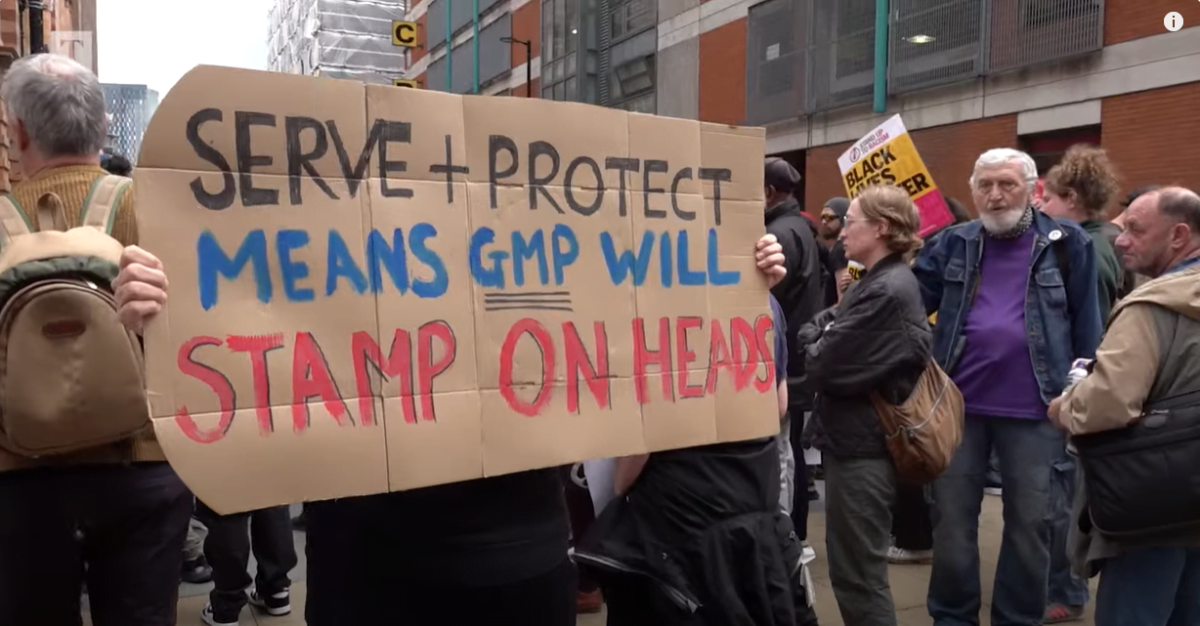The High Court this week ruled that proposed Tory cuts to legal aid are unlawful and discriminatory. The scale of austerity needed to keep capitalism afloat can barely be carried out within the framework of bourgeois democracy. Even bourgeois judges are being forced by the basic principles of bourgeois democracy to oppose the Tories’ attempts to make the poorest pay for the crisis of capitalism.
The High Court this week ruled that proposed Tory reforms to legal aid, which are part of the programme of cuts to legal provision for the poorest in society, are unlawful and discriminatory. This is an indication that the scale of austerity needed to keep capitalism afloat can barely be carried out within the framework of bourgeois democracy. Even bourgeois judges, well practiced in protecting the interests of the ruling class, are being forced by the basic principles of bourgeois democracy to oppose the Tories’ attempts to make the poorest pay for the crisis of capitalism.
Chris Grayling, the Tory justice minister, tried to push through secondary legislation which would see people who had been resident in Britain for less than twelve months stripped of the right to legal aid for civil claims. Legal aid is granted to cover the legal costs of those least able to afford them. Immigrants are some of those most at risk of exploitation, particularly having just arrived in Britain. These measures then would have deprived the most vulnerable people of access to the law.
Contempt for the law
That Grayling tried to implement such reforms betrays callousness and desperation. Recent scandal surrounding alleged paedophilia among top Tories, as well as bribery and phone hacking at the highest levels of government, have demonstrated that those at the top have a complete contempt for the law. They are powerful enough to ignore it and so are callous enough to think that they can remove ordinary people’s right to legal protection without a second thought.
But they are also desperate to make savings wherever they can. Legal aid is another expense on the welfare bill, and by cutting it the Tories hope they can keep their friends in big business happy, and keep the capitalist system stumbling along for a little while longer. Legal costs are extortionate and so legal aid is some of the most vital protection people with legal difficulties rely on. Attempting to remove this for a large layer of vulnerable people represents a new low for the Tories who are being forced by the crisis of capitalism to find new places to cut.
The Tories are relying on whipping up nationalist hysteria using lies about immigrants coming to Britain and sponging off legal aid provision in order to get public support for this policy. This is a classic example of dividing people amongst themselves along national lines, all the better to push through measures that attack the entire working class, irrelevant of nationality.
As socialists we do not place our faith in bourgeois courts to protect us from this kind of attack. Working class unity and a reliance on our own strength and organisations are the only guarantees of real protection. Indeed, the recent acquittal of Rebekah Brooks is evidence enough of the courts’ willingness to dance to the bourgeois tune.
However, on this occasion Grayling’s proposals were so hair-raising that even the High Court judges were forced to oppose them. They declared them unlawful on the basis of one of the most fundamental principles of bourgeois democracy – that everyone is equal before the law. And they pointed out that if a person is subject to the law then he should also be entitled to its protection. By depriving people of legal aid who have not been resident in Britain for at least one year the Tories threatened to breach this basic democratic right.
Democratic rights: incompatible with capitalism
Disgraceful as the Tory behaviour is, it should also not come as much of a surprise. The international bourgeoisie and their representatives in governments have consistently shown that the measures required to prop up capitalism in crisis are incompatible with even the most basic formal democratic requirements. In 2009 unelected technocratic governments were installed in Greece and Italy to implement austerity measures against the will of the majority of the population. In Portugal, Spain and other countries unelected officials from the Troika oversee the work of the elected government to ensure that it complies with their diktats. And recent coups in Thailand and Ukraine have demonstrated the lengths to which the bourgeoisie will go to secure their interests in the face of popular opposition.
Grayling represents a wing of the ruling class that has come to terms with this new reality and is willing to throw caution to the wind in pursuing policies that ride roughshod over formal democratic rights in order to defend the capitalist system. The High Court judges on the other hand are resistant to this. This represents a setback for Grayling, but it will certainly not be the end of Tory attacks on legal aid, welfare in general and democratic rights as a whole.
The problem that Grayling and the Tories will have is that basic democratic rights, such as equality before the law, will not be given up willingly by the working class in order that they can be brutalised even further by the bourgeoisie. Tory attacks on formal equality, combined with the increasing realisation that formal equality under capitalism does nothing to alleviate actual inequality in society, will lead people to draw conclusions about the need for genuine equality and proletarian democracy in which the running of businesses and economic production are democratically planned. This is not something that will be granted to us by the courts – it is something we must win for ourselves through united working class struggle.
We should defend basic democratic rights under capitalism when they come into the firing line of capitalist austerity, but we must also point out that genuine democracy and true equality can only be achieved in a socialist society.






